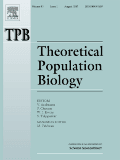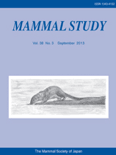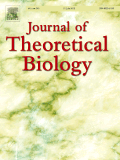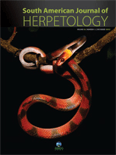
THEORETICAL POPULATION BIOLOGY
metrics 2024
Innovating Insights in Evolutionary Frameworks
Introduction
THEORETICAL POPULATION BIOLOGY is a leading academic journal published by Academic Press Inc. Elsevier Science, dedicated to advancing the understanding of population biology through theoretical frameworks and models. With an ISSN of 0040-5809 and an E-ISSN of 1096-0325, this journal has been a cornerstone in its field since its inception in 1970. Recognized for its significant contributions to the study of ecological and evolutionary dynamics, it currently holds a Q2 ranking in the Ecology, Evolution, Behavior and Systematics category as per the 2023 category quartiles. Researchers and professionals alike appreciate its role in disseminating impactful findings, as reflected in its percentile ranking of the 51st in Scopus for the Agricultural and Biological Sciences field. While the journal is not open access, it remains a vital resource for those looking to deepen their knowledge and research in theoretical approaches to population biology, making it an essential read for students, aspiring scientists, and veteran researchers seeking to engage with cutting-edge theoretical developments.
Metrics 2024
 0.65
0.65 1.20
1.20 1.20
1.20 97
97Metrics History
Rank 2024
Scopus
IF (Web Of Science)
JCI (Web Of Science)
Quartile History
Similar Journals

Annual Review of Ecology Evolution and Systematics
Exploring the Dynamic Interplay of Nature's ProcessesThe Annual Review of Ecology, Evolution, and Systematics, published by Annual Reviews, is a leading academic journal dedicated to advancing the understanding of ecological and evolutionary processes. With a commendable impact factor and impressive rankings—9th in both the Ecology, Evolution, Behavior and Systematics category and the Environmental Science category—this journal is recognized for its rigorous peer-reviewed articles that synthesize research findings across a wide range of topics within the fields of ecology and evolutionary biology. Established in 2003, this annual publication aims to provide researchers, professionals, and students with comprehensive insights into the latest developments and trends within these dynamic disciplines. By facilitating access to high-quality scholarly articles, the Annual Review of Ecology, Evolution, and Systematics continues to play a crucial role in fostering scientific discourse and discovery.

AMERICAN NATURALIST
Charting New Territories in Biological UnderstandingAMERICAN NATURALIST, published by University of Chicago Press, stands as a premier outlet for scholarly research in the fields of ecology, evolution, behavior, and systematics. With an impact factor that reflects its high citation rate, the journal has garnered a reputation within the academic community, evidenced by its placement in the Q1 category of its discipline in 2023 and an impressive Scopus rank of #135 out of 721 journals, positioning it in the 81st percentile for Agricultural and Biological Sciences. The journal, established in 1946, continues to uphold its commitment to advancing scientific knowledge through rigorous peer-reviewed articles. Researchers and professionals will find AMERICAN NATURALIST an essential resource, providing insights and discussions that illuminate complex biological phenomena, while fostering a deeper understanding of the natural world. As an essential reading for students and seasoned experts alike, its curated body of work encourages innovative thinking and exploration across an array of ecological and evolutionary topics.

MAMMAL STUDY
Championing conservation through impactful mammalogy studies.Mammal Study, published by the Mammalogical Society of Japan, is a leading academic journal dedicated to the field of mammalogy and related biological sciences. Since its inception, it has provided a critical platform for researchers, professionals, and students to share their findings and insights into the diverse facets of mammalian biology, ecology, and conservation. The journal, with ISSN 1343-4152 and E-ISSN 1348-6160, is recognized for its rigorous peer-review process and has attained a commendable Q3 ranking in the 2023 category of Animal Science and Zoology. With an impact factor reflecting its growing influence—ranking 283 out of 490 in Scopus—we welcome contributions that advance the understanding of mammalian species and their habitats. While access to published articles is through traditional channels, the journal aims to reach an even wider audience by fostering greater awareness and appreciation for mammalian research and conservation efforts. The Mammal Study has converged years of insightful publications from 2008 to 2024, solidifying its position as a vital resource in the biological sciences.

HEREDITY
Fostering Excellence in Genetics: Join the ConversationHEREDITY is a prestigious academic journal published by SpringerNature, specializing in the dynamic fields of Genetics and Genetics (Clinical). With a history of excellence since its inception in 1947, this journal has established itself as a significant contributor to the understanding of genetic research, addressing both foundational principles and clinical applications. Operating without an open access model, it maintains a strong reputation with an impact factor that reflects its rigorous peer-review process and high-quality submissions, ranking in the top quartiles of its category as evidenced by its Q2 classification in Genetics and Genetics (clinical) for 2023. Further, HEREDITY holds commendable positions in Scopus rankings, illustrating its influence within the field, currently placed #21 out of 99 in Medicine (Clinical Genetics) and #87 out of 347 in Biochemistry, Genetics, and Molecular Biology (Genetics). Researchers, professionals, and students are invited to explore the latest discoveries and advancements in genetics through this esteemed journal, contributing to the broader discourse and innovation within the field.

Russian Journal of Biological Invasions
Navigating the intricacies of invasive species dynamics.Russian Journal of Biological Invasions, published by PLEIADES PUBLISHING INC, is a pioneering periodical dedicated to advancing the understanding of biological invasions in diverse ecological contexts. With an ISSN of 2075-1117 and an E-ISSN of 2075-1125, the journal primarily serves the scientific community in the fields of ecology, evolution, behavior, and systematics, boasting a respectable Q3 categorization in Ecology for 2023 and ranking 559 out of 721 in its domain in Scopus. The journal's coverage spans from 2010 to 2024, addressing critical issues such as the ecological impacts of invasive species and offering insights into management strategies. Though not an Open Access journal, it provides invaluable resources for researchers, professionals, and students keen on tackling the challenges posed by biological invasions. Its contributions significantly enrich the discourse in ecological research and conservation efforts, making it an essential resource for those seeking to comprehend and mitigate the effects of invasive species on ecosystems across the globe.

JOURNAL OF THEORETICAL BIOLOGY
Innovating Insights into Complex Biological SystemsJOURNAL OF THEORETICAL BIOLOGY, published by Academic Press Ltd - Elsevier Science Ltd, stands as a pivotal source of scholarly research in the domains of theoretical and applied biological sciences. Since its inception in 1961, this esteemed journal has contributed significantly to the advancement of knowledge across various fields, including agricultural sciences, applied mathematics, biochemistry, genetics, immunology, and medical research. With a commendable Q2 ranking in multiple categories for 2023, it showcases robust impact throughout the academic community, reflected in its high Scopus rankings, which place it in the top 25% of journals in several categories. The journal's commitment to fostering interdisciplinary research supports its objective of bridging theoretical frameworks with practical applications, making it an essential resource for researchers, professionals, and students alike. With its wide-ranging topics and a keen focus on innovation, the JOURNAL OF THEORETICAL BIOLOGY is indispensable for those seeking to explore the complexities of biological systems and their mathematical modeling.

EVOLUTIONARY ECOLOGY
Bridging Evolutionary Insights with Ecological UnderstandingEVOLUTIONARY ECOLOGY is a prestigious academic journal published by SPRINGER, exploring the intricate relationships between evolutionary processes and ecological dynamics since its inception in 1987. As a key resource in the field of Ecology, Evolution, Behavior, and Systematics, the journal is recognized for its impactful contributions, holding a commendable Q2 quartile ranking in its category as of 2023. With an emphasis on empirical and theoretical studies that bridge evolutionary biology with ecological principles, EVOLUTIONARY ECOLOGY is essential for researchers, practitioners, and students aiming to deepen their understanding of biodiversity, adaptation, and ecosystem functioning. Although it currently does not offer open access, the journal maintains a commitment to disseminating high-quality research that influences both foundational knowledge and practical applications in the field. Located in the Netherlands, the journal continues to serve a global audience, making significant contributions to advancing ecological and evolutionary research through rigorous scientific discourse and innovation.

BULLETIN OF MATHEMATICAL BIOLOGY
Exploring the Mathematical Foundations of LifeBulletin of Mathematical Biology, published by Springer, is a premier journal dedicated to advancing the field of mathematical biology. With an ISSN of 0092-8240 and an E-ISSN of 1522-9602, this journal has been at the forefront of interdisciplinary research since its inception in 1973, continuing to deliver high-quality contributions through 2024. Operating without an open-access model, the journal maintains robust academic rigor, reflected in its category quartiles for 2023, which positions it in Q1 and Q2 across several relevant fields, including Agricultural and Biological Sciences, Biochemistry, Genetics, and Mathematics, among others. Its impressive Scopus ranks further underscore its significance, placing it in the top tier of journals in general mathematics and agricultural sciences. Researchers, professionals, and students looking to deepen their understanding and contribute to the evolving landscape of mathematical biology will find this journal an essential resource for contemporary studies and advancements in the field.

ZHURNAL OBSHCHEI BIOLOGII
Pioneering Discoveries in Ecology and MedicineZHURNAL OBSHCHEI BIOLOGII, published by MEZHDUNARODNAYA KNIGA in the Russian Federation, is a venerable journal with a rich history originating in 1945. Renowned for its contributions to the fields of Ecology, Evolution, Behavior, and Systematics, as well as Medicine (miscellaneous), this journal provides a platform for researchers and professionals to disseminate significant findings within these domains. Although currently not classified as an open access publication, ZHURNAL OBSHCHEI BIOLOGII holds a Q4 quartile designation in its respective categories, reflecting its unique positioning within the global research landscape. While its coverage in Scopus is limited, the journal remains an important resource for academics interested in the evolution of biological sciences, especially within the context of Russian research traditions. By fostering scholarly communication and collaboration, ZHURNAL OBSHCHEI BIOLOGII continues to play a critical role in advancing knowledge in the biological sciences.

South American Journal of Herpetology
Bridging regional insights with global herpetological research.South American Journal of Herpetology is a vital resource in the field of herpetology, published by the Sociedade Brasileira de Herpetologia. Established to advance the study of amphibians and reptiles, this journal aims to bridge the gap between regional science and global research. As an influential platform operating from Brazil, it serves as a forum for researchers, professionals, and students dedicated to understanding the rich diversity of South American herpetofauna. With a focus on innovative studies and critical reviews, the journal has been categorized in the Q3 quartile for both Animal Science and Zoology and Ecology, Evolution, Behavior and Systematics as of 2023, indicating a growing impact within these disciplines. Although currently not open access, it offers unique insights into the ecological and evolutionary aspects of herpetology, contributing significantly to discussions on conservation and biodiversity. The journal is housed at the prestigious Museu de Zoologia da Universidade de São Paulo, ensuring high academic standards and engagement with leading researchers in the field.